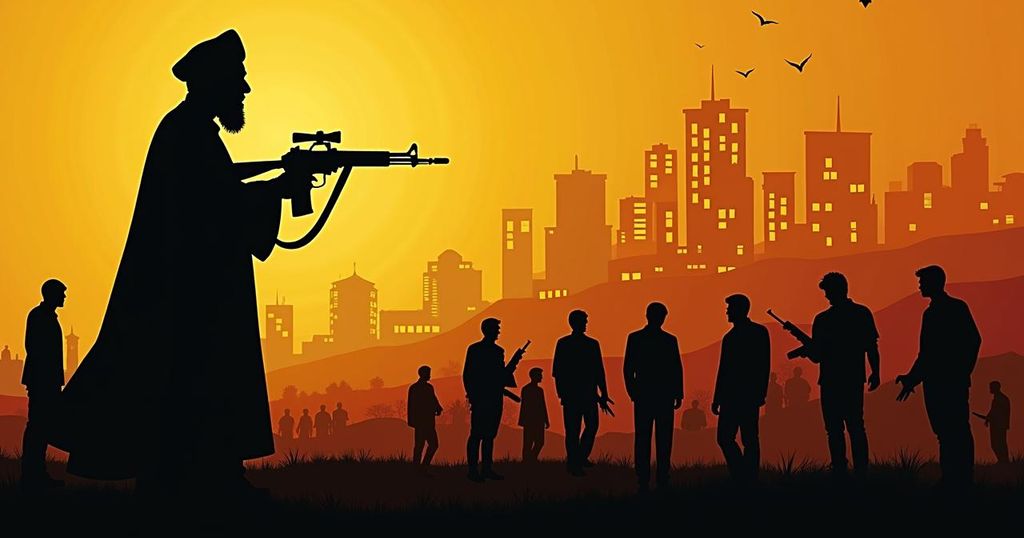The assassination of Hassan Nasrallah leaves Hezbollah in disarray, facing significant Israeli military pressure and necessitating strategic decisions from both Hezbollah and Iran. The situation could evolve with implications for regional security dynamics, particularly regarding Hamas’s position in Gaza. Israel’s military actions may dictate further developments as Hezbollah contemplates its next steps following its leader’s death.
The assassination of Hassan Nasrallah, the leader of Hezbollah, marks a significant turning point not only in the immediate conflict but also for the broader geopolitical landscape of the Middle East. Following an extensive series of airstrikes targeting key locations in southern Beirut, Israel successfully eliminated Nasrallah, who had managed to elude assassination attempts since the 2006 Lebanon War. As the leader of Hezbollah, Nasrallah was pivotal in transforming the organization into a formidable military actor, heavily armed and heavily supported by Iran. However, with his death, Hezbollah finds itself leaderless and in turmoil, facing unprecedented Israeli military aggression. Despite the loss of its leader, Hezbollah retains significant military capabilities and a loyal base. The recent Israeli intelligence successes, which have led to the death of various high-ranking militants including Ali Karaqi—the second most wanted by the Israel Defense Forces (IDF)—have led to a weakened command structure within Hezbollah. This raises questions about the group’s future direction and its response to Israeli provocations. As this new chapter unfolds, it is critical for both Iran and Hezbollah to deliberate on their next steps: whether to escalate the conflict further or to pull back and reassess the situation. Historical precedents suggest that the death of a major leader can lead to unexpected outcomes, including potentially more radical successors. Therefore, the situation remains fluid and uncertain. Moreover, the implications of Nasrallah’s death extend beyond Hezbollah, potentially affecting Hamas’s strategy in Gaza. Yahya Sinwar, Hamas’s leader, faces increased isolation similar to that of Nasrallah and must navigate this complex landscape amidst dwindling support. In summary, as the Israeli government considers its military options, including a potential ground invasion of Lebanon, the dynamics in the region are likely to evolve rapidly. The assurances of Hezbollah’s resilience will be tested as it seeks to regroup and respond in a manner that preserves its influence and operational capacity. As Hezbollah contemplates its future, the actions taken by Iran will also play a crucial role in determining the next phase of the conflict.
The article centers around the assassination of Hassan Nasrallah, the leader of Hezbollah, during Israeli airstrikes in Beirut, which represents a critical juncture in the ongoing conflict. Nasrallah was a key figure in establishing Hezbollah as a major military force, with extensive support from Iran. The article explores the aftermath of his death, particularly the impact on Hezbollah’s command structure and potential responses from both Hezbollah and Iran. It highlights the challenges the group faces in maintaining its operational effectiveness while considering its next strategic moves. Additionally, it addresses the broader implications for regional dynamics, particularly concerning Iran’s influence and the situation in Gaza with Hamas.
The assassination of Hassan Nasrallah fundamentally reshapes the landscape for Hezbollah and the broader Middle Eastern context. Hezbollah’s leadership void poses significant challenges as the organization grapples with responding to Israeli aggression. The historical lessons suggest that while the death of a leader can initially disadvantage a group, it may also lead to shifts towards more aggressive successors. Iran’s determinations, alongside Hezbollah’s decisions, will be pivotal in dictating the subsequent engagements in the conflict. As Israeli military options are debated, both Hezbollah and Hamas must navigate an increasingly complex and perilous environment.
Original Source: news.sky.com






